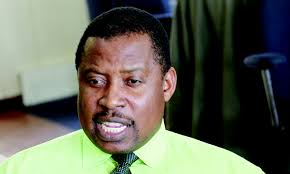By Byron Mutingwende
The Ministry of Primary and Secondary Education has been urged to consider concerns by stakeholders over the newly introduced curriculum. The new primary and secondary school curriculum has been met with considerable outcry; with many within the education sector pointing out that this policy lacked sufficient consultative processes to ensure that it reflected the needs of the sector.
“The controversial curriculum has been heavily criticised for a variety of reasons, most prominently that it is has been introduced in a haphazard manner that has neglected to include the voices of stakeholders as well as to take into consideration the limited resources available for implementation. The new curriculum introduces new technologies and materials that are supposed to prepare learners for more skills based employment.
“However, critics insist that this new curriculum is detrimental to an already crumbling education sector. The new curriculum, which was introduced at the beginning of 2017, includes subjects that have never been taught before. As yet teachers have not been trained in the new curriculum and there are no textbooks available,” said Ronald Munatsi, the Director of the Zimbabwe Evidence Informed Policy Network (ZeipNet) at a discussion Forum held at the New Ambassador Hotel in Harare on Monday 27 February 2017.
Munatsi bemoaned the fact that the curriculum introduces technology such as smartphones in a country where rural education is already lagging behind due to limited resources both human and financial.
The Minister of Primary and Secondary Education, Lazarus Dokora has been accused of introducing new policies that are not sufficiently backed by evidence, be it research, expert opinion or citizen knowledge.
Former education Minister, David Coltart, has criticised the Minister for causing chaos through introducing personally opinionated policies with far reaching detrimental effects. Although the former Minister agrees that there was need for reforming the curriculum, he is critical of the haphazard non-consultative process that has led to these changes in policy.
Parents have also responded with outrage and fury at the cost implications of this new curriculum in the midst of a growing economic crisis. Last year Minister Dokora also introduced a controversial national pledge for all students, which was seen by many as a move to politicise education.
These changes to the education curriculum are based on the recommendations made in the Nziramasanga Commission of Enquiry Report which was written almost twenty years ago and was never implemented since then. There has been no reference made to other evidence and it is unclear what has informed the decisions for these sweeping changes to the curriculum other than the two decade-old report.
Sifiso Ndlovu, the Chief Executive Officer of the Zimbabwe Teachers Association (ZIMTA) said that the vocationalisation of the secondary school curriculum was essential especially if the school system was to produce job creators rather than only job seekers.
He urged the Government to look seriously into the formulation of a teachers’ council, which would be responsible for the accreditation and professional conduct of teachers. Ndlovu bemoaned the fact that teaching had not attained the status of a profession. As a result, teachers had been disadvantaged. Resultantly, the whole image of teaching would improve if it got the status of a profession, he said.
The educationist called for some subject specialisation at primary level in subjects like music, Art and Craft, and Agriculture, which are meant to develop special skills in pupils. In that vein, specialist teachers were necessary for the development of those skills in pupils.
On the challenges, Ndlovu bemoaned the fact that the ministry had ignored the implementation of the curriculum at a time the country was better financially grounded.
“The lack of political will to implement the curriculum on the part of the then ministers is regrettable at a time the country was financially stable. The ministers of education were Dzingai Mutumbuka (1980-1988), Fay Chung (1988-1993) and Gabriel Machinga ,” Ndlovu said.
He said that the new curriculum ignored the active involvement of the researchers; professional development was short and speedy; and lamented the inadequate infrastructure and equipment.
Raymond Majongwe, the Secretary-General of the Progressive Teachers Union of Zimbabwe (PTUZ) totally rejected the new curriculum as he said there was absolutely no consultation of the teachers who are the key stakeholders driving education.
